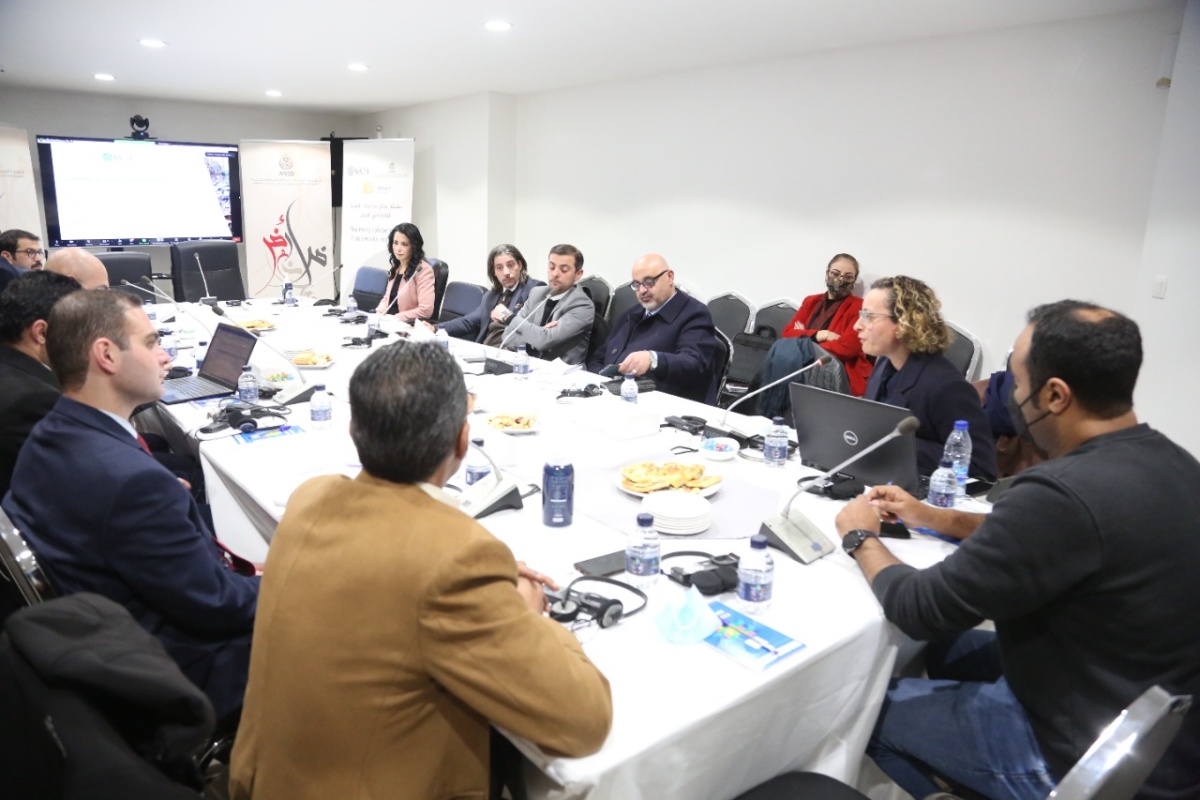The Public Health Policy Lab in Jordan, an initiative of the Arab Renaissance for Democracy and Development (ARDD) and Durrat Al-Manal for Development and Training that emerged from the Forum for Supporting the Justice Sector, conducted its first session over three months ago on medical accountability in the public health sector and access to legal protection in Jordan.
Following this session, several meetings were held amongst lab members, consisting of experts in the health and justice fields. Their goal was to design a framework for future dialogues and continue to build upon them using a set of tools and analytical methods that would help integrate the right to health into the justice system, resulting in an improvement to the Jordanian health sector. It is worth noting that the health sector has witnessed a steep decline due to the COVID-19 pandemic leading to an increase in cases of medical accountability as well as growing gaps in health services.
On January 19, the Public Health Policy Lab in Jordan held its fourth periodic meeting. Taking part were ARDD’s CEO Samar Muhareb, who made the opening remarks, Dr. Rana Jawad from the University of Bath, Dr. Chaheer Zaki from Cairo University, Prof. Rachel Forrester-Jones from The University of Western Ontario, representatives from the health and justice sectors, social activists, media professionals and civil and international society actors.
Dr. Sawsan Al-Majali, the meeting chair, emphasized that “one of the basics of inclusive policies is considering the right to health a top priority.” Dr. Majali asserted that this right is not stipulated in the Jordanian constitution, making decisions related to health random and dependent on the policies of the day and on financial resources. They highlighted that the Public Health Policy Lab strives to make access to health services a basic right for everyone who lives in Jordan.
Ms. Muhareb emphasized the increasing number of cases regarding medical malpractice and explained that these cases “played the biggest role in the Forum for Supporting the Justice sector decision to initiate the policy lab.” She explained that the health sector has been gravely impacted by the COVID-19 pandemic and it requires concerted efforts from civil society organizations to prop it up. Furthermore, Ms. Muhareb highlighted the importance of sustainability and collaboration in advocacy efforts in order to achieve the necessary impact. She added that the next phase should focus on building upon existing gains and work and moving from dialogue to evidence-based policy, benefitting from the expertise of regional and international experts.
Dr. Jawad explained that even in the absence of adequate resources, “transparency, patience, perseverance, and ambition,” as well as making use of existing tools and indicators and working on developing strengths, are all pillars of success for the Public Health Policy Lab. She also said that the policy lab is based on continuous experimentation; whether to suggest solutions, recommend legal reforms or measure the effectiveness and suitability of interventions to effect desired change, in this case, securing social protection, including the right to health.
On the regional level, Dr. Zaki gave an overview of the Policy Lab experience in Egypt which was held in collaboration between Cairo University and the University of Bath. Dr. Zaki explained that the experience shed light on the objectives achieved and challenges faced, adding that “the Policy Lab gave the researchers a space to discuss social protection policies with governmental entities and civil society organizations face to face, as it gathered all the stakeholders at one table, something that was not possible before.” Furthermore, he added that the lab contributed to identifying the points that should be worked on and answered questions posed by the government.
The challenges, he stated, were sustainability in terms of time and projects. For example, keeping the same partners over the lifespan of the lab and the extent to which the lab can come up with a clear policy paper to respond to the questions posed by decision makers.
From an international perspective (regarding the Public Health Policy Lab’s experience in the United Kingdom) Dr. Forrester-Jonesmentioned that participation was a major challenge faced by the lab when it came to gathering a wide range of stakeholders. In order the achieve the recommended reform, she explained that participation and commitment are vital.
Dr. Maria del Mar Logrono from ARDD, offered an overview of the most important mechanisms and legal issues related to the health sector tackled by ARDD over the past year. ARDD, through its branches in the Kingdom, dealt with 611 cases that encountered problems in the health sector. In particular, the presentation explained that financial claims and hospitals withholding patients’ personal documents until they pay their dues has been a major issue.
Participants agreed on the importance of reviewing research issued by the Policy lab series to ensure that experts, decision- makers, patients and all those concerned have the opportunity to make their voices heard. Additionally, they agreed that it is necessary to understand the mechanisms through which health decisions are made in Jordan as well as to identify the major barriers facing the health sector. Participants asserted that coming up with health policies should not be the responsibility of the health sector alone, but rather of multiple sectors, as any policy recommendation should take a multi-stakeholder approach to enhance its chances of success.
Moreover, they stressed the need to identify stakeholders concerned with the recommended policies, to hold continuous dialogue and networking between official and private parties. Civil society organizations concerned with the health sector must also be considered in order to reach a consensus and disseminate success stories and indicators of achievement among decision makers and the media.
The Arab region does not lack good strategies. However, it does lack coordination, participation, and prioritization through unified policies and work mechanisms. This was the unanimous conclusion of the participants in the meeting. Nonetheless, the Public Health Policy Lab emphasized the commitment of the concerned parties and recognize their desire for participatory work, development, and change.


